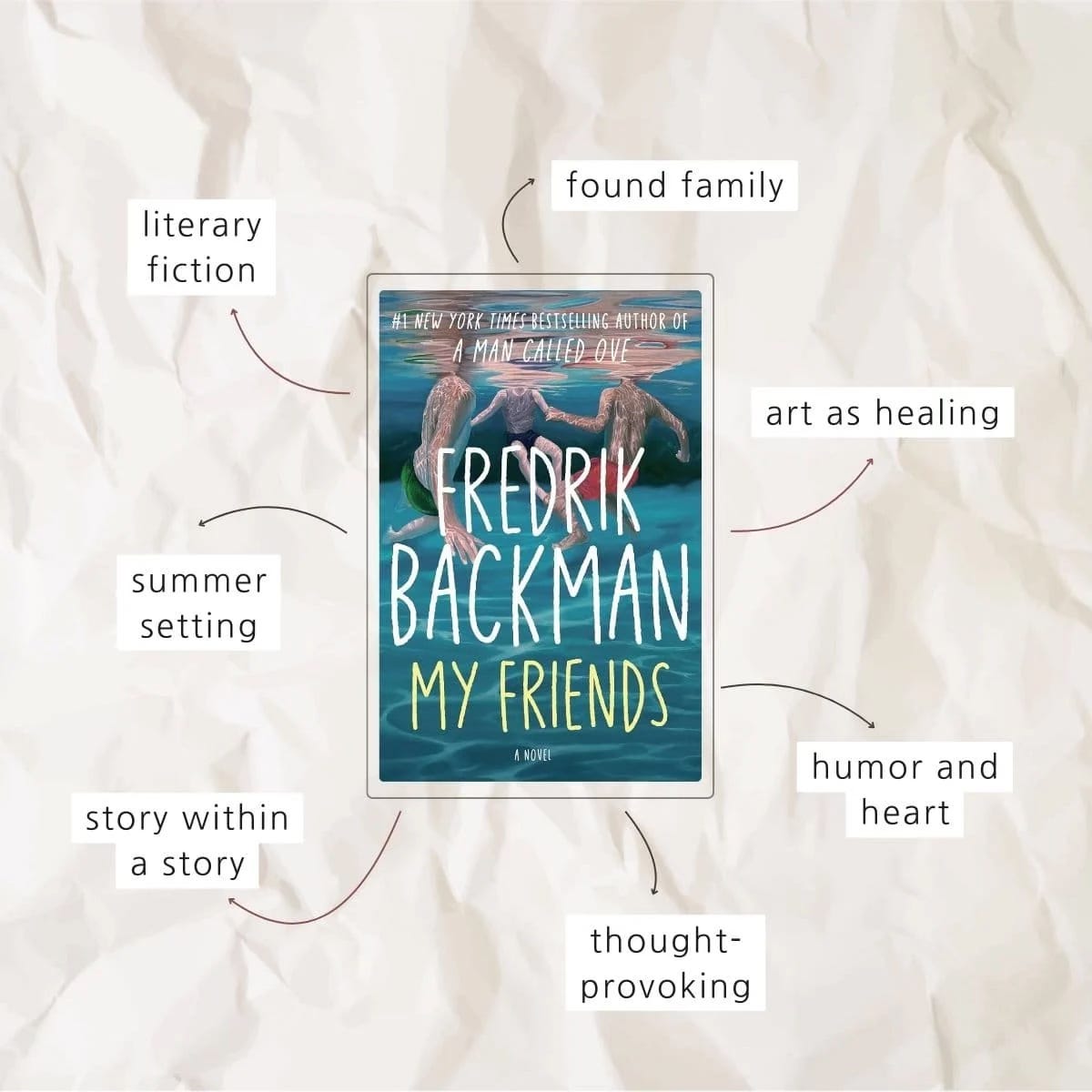My Reader Friends, Translators Making Asian Literature Accessible To The World
Summer Solstice edition
Hello and happy Sunday!
And happy Summer Solstice!
We are at that point in the year when the reader accounts I follow start to brag about the number of books they’ve read and publish “top [pick a number] reads this year” posts. For me, this year has been atypical, but fertile. I have almost reached my yearly goal before the half year is done, and only now do I realise, seeing all these posts about the top books of the summer, etc., that I didn’t stop to reflect on all the 30+ books I’ve read.
A reader dreams that they expand their horizons with every book, that they try new genres and experiences, that they get wowed as often as possible. Of course, the more you read, the less that happens, because you get to a point where you’ve seen it before, and writers overall are not as original as they think they are, or as their readership thinks they are.
Chasing that wow factor gets tiresome, though. Sometimes, I find myself wanting to read something comfortable, comforting, familiar, and mellow. I don’t always seek the deep writing, because I don’t always read at my most rested or most curious. Sometimes I read when I am tired, so challenging texts feel like hard work, and I don’t always take pleasure from reading them.
A book discussed is a book remembered.
This takes us back to the reader's existential question of “why do we read?” which we tackled many times on this Substack, and to which we know the answer is multifaceted, depending on who and when you ask.
One possible answer to this question is “to meet new people,” and I only became aware of this possible answer this year. This has been our book club’s most prolific year yet, with a few new members joining our group early on with the sole hope of finding people with similar likes and with a passion for books. We are finding ourselves reading and discussing books we wouldn’t have tried on our own (Orbital, by Samantha Harvey comes to mind; Haruki Murakami’s The City and Its Uncertain Walls is another).
A book discussed is a book remembered, I always say. Regardless of how we feel about it, talking about the book with other people who have also read it, hearing their opinions, their takes on what impressed them or what they didn’t like, cements the details of the reading experience well beyond and a lot better than reading on your own would have done. So, in a way, I remember the books we read for the book club far better than anything I read on my own.
As we approach the summer peak season, when most people are travelling, we are meeting and discussing two books in June. Having just finished a dense and intellectually engaging book, we’ve moved on to Fredrik Backman’s My Friends, the newest from the Swedish author and a much-anticipated release since its announcement.
The book cover and description made me hope that this book would be the comfortable and comforting one to lull me into summer reading vibes. You can probably guess from my tone that it wasn’t that for me.
Backman is known for his heart-wrenching stories told in a bittersweet tone peppered with one-liners and punchlines, and this book is no exception. He is no stranger to our group, since we jumped on the bandwagon and read A Man Called Ove (back in 2019, when it seemed to me that everyone was reading this book!) and Anxious People (2022). In keeping with this pace, three years later, we are reading his latest book. As we read and kept ourselves updated, it became evident that we wouldn’t share similar opinions on this book. We are meeting next week to discuss it, so I will wait for the conclusions on the book discussion before writing a review.
If you’re reading this and you’re intrigued, here is a visual summary created by theliterarylifestyle.com. I’ve prepared the discussion questions, which you can find in the footnotes1.
Translators bringing Hong Kong literature to the world
Since we were talking about what a reader dreams of (and hey, feel free to tell me in the comments what you’re dreaming of, as a reader), we’ve objectively seen a surge of interest in translated literature in the past five, maybe more, years.
South China Morning Post writes:
More English readers are asking for translated literature – and in Hong Kong and beyond, the art of translation is taking off.
After The Three-Body Problem by Liu Cixin, which took the world by storm a couple of years ago, Western readers have developed a taste for Asian narratives. The rise of K-pop culture and the popularity of Squid Game likely contributed to that thirst.
South China Morning Post writes about a new wave of translators bringing Hong Kong literature to a global audience, reflecting a growing demand for translated works.
I read the article, so you don’t have to.
The article begins with Hon Lai-chu's novel Mending Bodies (notice the mention of bodies in the title), which has recently become available in English, and explores identity and free will in a surreal cityscape. I don’t know much about it, but at a quick glance, one of the Goodreads reviewers says, “The government of a dystopian Hong Kong passes the Conjoinment Act, encouraging people to literally attach their body to that of another person, often a near stranger.” I had sworn off dystopian novels as it is, and only reading this sentence makes me uncomfortable, but it is no less than I expected from an Asian dystopian novel. When the world is on the brink of World War III maybe all we need is to read about how much worse it could be.
Despite Hon's prolific output, only one other of her books had been translated—highlighting how scarce Hong Kong literature has been in English. Over the past decade, interest in translated fiction has surged, driven by notable successes such as Deborah Smith's Man Booker International Prize-winning translation from Korean of Han Kang's The Vegetarian. Elena Ferrante and Karl Ove Knausgaard are two other authors with international recognition due to their translations. We could include our own Fredrik Backman in this statistic.
In the UK, sales of translated fiction rose 22% in 2022, with younger readers leading this trend.
This renaissance has transformed opportunities for Hong Kong writers, with recent English translations of Dorothy Tse and Xi Xi gaining international recognition. While translation was once primarily the domain of academics—often outsiders to Hong Kong—a new generation of literary translators is emerging. Many of these translators, raised in the city or part of the Cantonese diaspora, are writers themselves. Notable figures like May Huang and Fion Tse are helping craft a more authentic and nuanced representation of Hong Kong's literary voice abroad, and I am here for it.
You don’t have to remember these names, I am sure we will come across them in the future. With the global shift of attention towards China, I am not surprised that fiction writing and book publishing are taking a fresh perspective on rendering stories to the public.
What is your rating for the book (1-5 or 1-10)?
What did you like most about the book? What did you dislike most?
Was there a particular character you identified with more than the others? Why?
The book centres on friendship and loyalty among unlikely companions. What do you think brings these characters together, and what does that say about the power of human connection?
The artist’s painting of the sea is pivotal. How does art function differently for young people versus adults in the story? Does its significance change as the friends grow older?
What do you think the pier in the painting symbolises?
How did the seaside setting influence your reading experience or the characters’ relationships?
The story balances humour with serious topics like loss and trauma. How did these themes affect your perception of the characters as you got to know them?
In Chapter 28, Louisa mentions Fish’s idea about choosing a perfect moment to relive for eternity. What would that moment be for you? What does this reveal about Fish and Louisa?
Joar’s character changes significantly throughout the book. Were you surprised by his development? In what ways did he stay the same?
How do family dynamics and inherited trauma shape the main characters? What do they gain or lose from their family legacies?
Redemption and second chances are important themes. How do these play out in the narrative and for the characters?
Fredrik Backman uses humour to navigate dark moments. Share your favourite humorous scene and how it impacted your reading experience.
The group of friends is described as a “chosen family.” How does the concept of home feature throughout the book, and do those ideas change as we age?
In Chapter 7, the artist says, “You have to take [life] for granted.... That’s the only courageous thing a person can do.” What do you think this means?
How did My Friends compare to other Backman books you’ve read, if any?
Why do you think the cover focuses on the three boys? Did it capture the story and themes of the book?
Why do you think the book is set at Easter? How does this timing affect the story or its symbolism?
How do class and social status influence the characters and their relationship to art?
Discuss art as a coping mechanism for the characters. How does it help them process trauma or loss?
The book suggests that “art is what we leave of ourselves in other people.” How do you interpret this idea?
What did “the artist” see in Louisa? Why was she chosen as the painting’s inheritor?
Discuss the role of grief in shaping the story and the characters’ motivations.
Share a “lucky summer day” or friendship from your own life that resonates with the novel’s themes.
Water is a recurring symbol. What do you think it represents in the story?
Why isn’t the artist’s name revealed until later in the book? What effect did this have on your reading experience?
Compare and contrast the found families and biological families in the novel. What does the book say about each?
If you could ask the author one question related to this book, what would it be?
What did you think about the title? What about the cover? Did it capture the story and book?
What did you think about the ending? How would you have changed it?









I am dreaming of a summer read, a short book, around 350 pages, exploring intimacy and relationships in a deep way, similar to Normal People or as well crafted as Elena Ferrante’s introspective writing, where the focus is not on an LGBTQ+ couple (I don't mind the theme, but I feel I need a book that really speaks to me, and that's hard to find these days), and of course I want the book to be contemporary, modern, in trends— why not? ChatGPT didn't suggest anything to pique my interest.
Have you come across this recommendation yet?
https://www.goodreads.com/book/show/63094957
I haven’t read it, but it keeps popping up, and based on your description, it seems like it could be what you’re looking for.